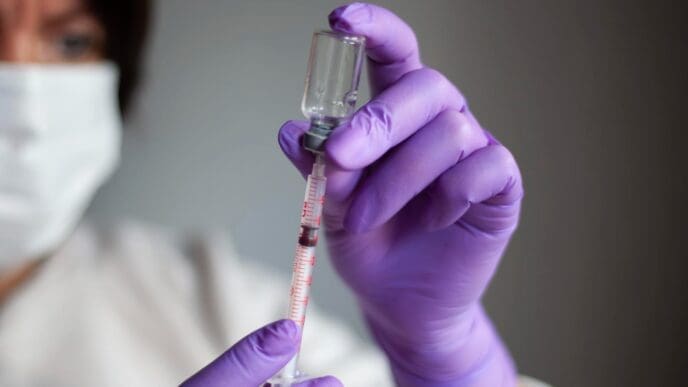A growing body of scientific evidence is confirming what many have long suspected: the food we eat has a direct and significant impact on our mental health. For the millions of people worldwide grappling with depression, this connection offers a powerful, tangible tool for managing their well-being. Researchers in the emerging field of Nutritional Psychiatry are demonstrating how specific dietary patterns can influence brain function, inflammation, and gut health—all of which are critically linked to the risk and severity of depressive disorders. This understanding moves diet from a footnote in mental health care to a foundational pillar of a holistic treatment approach.
The Gut-Brain Axis: Your Second Brain’s Influence on Mood
One of the most profound discoveries in modern medicine is the intricate communication network between our digestive system and our brain, often called the gut-brain axis. Your gut is lined with hundreds of millions of neurons and is home to trillions of microorganisms, collectively known as the gut microbiome. This “second brain” does more than just digest food; it produces a vast majority—up to 95%—of the body’s serotonin, a key neurotransmitter responsible for regulating mood, sleep, and appetite.
When the gut microbiome is balanced and healthy, this communication pathway functions smoothly. However, a diet high in processed foods and sugar and low in fiber can disrupt this delicate ecosystem, a condition known as dysbiosis. This imbalance can lead to reduced neurotransmitter production and increased inflammation, sending stress signals to the brain that can contribute to or worsen symptoms of depression and anxiety.
Nourishing the gut microbiome is therefore a primary strategy in using diet to support mental health. This involves consuming foods rich in probiotics (beneficial bacteria) and prebiotics (the fiber that feeds these bacteria). Probiotic-rich foods include fermented items like yogurt with live active cultures, kefir, sauerkraut, kimchi, and kombucha. Prebiotic-rich foods include onions, garlic, bananas, asparagus, oats, and legumes.
Fighting Inflammation: The Anti-Inflammatory Diet
Chronic, low-grade inflammation is now recognized as a key physiological driver of depression. While short-term inflammation is a healthy immune response to injury or infection, persistent inflammation can damage tissues throughout the body, including the brain. Studies have shown that individuals with depression often have higher levels of inflammatory markers, like C-reactive protein (CRP), in their blood.
The standard Western diet—characterized by high amounts of sugar, refined carbohydrates, unhealthy fats, and processed foods—is inherently pro-inflammatory. These foods can trigger an inflammatory response in the gut, which then signals the brain, contributing to the neuroinflammation associated with mood disorders. This can impair the brain’s ability to produce and use neurotransmitters effectively.
Adopting an anti-inflammatory diet is a powerful countermeasure. This approach emphasizes whole, unprocessed foods rich in compounds that actively fight inflammation. The Mediterranean diet is often cited as the gold standard, as it is naturally rich in anti-inflammatory components like healthy fats, antioxidants, and fiber. The goal is to calm the body’s inflammatory response, thereby creating a more stable internal environment for the brain to function optimally.
Building Blocks for Your Brain: Key Nutrients for Mental Health
Just as a car needs the right fuel and oil to run, the brain requires a steady supply of specific nutrients to build neurotransmitters, protect against damage, and maintain healthy function. Deficiencies in certain vitamins and minerals are strongly linked to an increased risk of depression. Focusing on nutrient-dense foods can provide the brain with the essential building blocks it needs for resilience.
Omega-3 Fatty Acids
Omega-3s, particularly EPA (eicosapentaenoic acid) and DHA (docosahexaenoic acid), are critical components of brain cell membranes. They enhance cell fluidity, facilitate communication between brain cells, and have potent anti-inflammatory effects. Low levels of omega-3s are consistently associated with a higher incidence of depression. Excellent sources include fatty fish like salmon, mackerel, herring, and sardines. Plant-based sources like flaxseeds, chia seeds, and walnuts are also beneficial.
B Vitamins (Folate, B12, B6)
The B-vitamin family plays a vital role in the brain’s synthesis of mood-regulating neurotransmitters like serotonin, dopamine, and norepinephrine. Folate (B9) and vitamin B12 are particularly important for a process called methylation, which is crucial for brain health. Deficiencies in these vitamins can impair neurotransmitter production and have been linked to more severe depression and a poorer response to antidepressant medication. To boost your intake, focus on leafy green vegetables (spinach, kale), legumes (lentils, chickpeas), avocados, and, for B12, animal products like meat, eggs, and dairy.
Tryptophan and Serotonin
Tryptophan is an essential amino acid, meaning the body cannot produce it on its own and must get it from food. It serves as the direct precursor to serotonin. For tryptophan to be effectively converted into serotonin in the brain, it needs to be consumed with a source of carbohydrates. This is why a balanced meal, rather than just a high-protein one, is key for mood. Foods rich in tryptophan include turkey, chicken, eggs, cheese, nuts, and seeds.
Magnesium
Often called the “calming mineral,” magnesium is involved in over 300 biochemical reactions in the body, including many related to nerve function and mood regulation. It helps regulate the body’s stress-response system and can have a stabilizing effect on mood. Unfortunately, many people have insufficient magnesium levels. Top sources include dark leafy greens, nuts and seeds (especially almonds and pumpkin seeds), avocados, and dark chocolate.
Zinc
This essential mineral is highly concentrated in the brain and plays a role in neurotransmission and overall brain function. Zinc deficiency has been linked to depressive symptoms, and some research suggests that zinc supplementation may enhance the effectiveness of antidepressant medications. Oysters are the most potent source of zinc, followed by beef, poultry, beans, and pumpkin seeds.
Antioxidants (Vitamins C & E)
The brain is highly susceptible to oxidative stress, a form of cellular damage caused by unstable molecules called free radicals. Antioxidants are compounds that neutralize these free radicals, protecting brain cells from damage. A diet rich in a variety of colorful fruits and vegetables ensures a good supply of antioxidants like Vitamin C (found in citrus fruits, bell peppers, strawberries) and Vitamin E (found in nuts, seeds, and spinach).
Foods to Limit or Avoid: The Other Side of the Coin
Just as some foods can support mental health, others can actively undermine it. Being mindful of these can be as important as adding beneficial foods to your diet. The primary culprits are foods that promote inflammation, cause blood sugar instability, and disrupt gut health.
Foods high in added sugar and refined carbohydrates (white bread, pastries, sugary drinks) cause rapid spikes and subsequent crashes in blood sugar levels. This rollercoaster effect can lead to irritability, fatigue, and low mood. Furthermore, high sugar intake is a major driver of inflammation and can negatively alter the gut microbiome.
Ultra-processed foods, which often contain unhealthy trans fats, artificial additives, and high amounts of sodium and sugar, are also strongly linked to poor mental health outcomes. These foods offer little nutritional value while actively contributing to the inflammation and oxidative stress that can harm the brain. Limiting consumption of fast food, packaged snacks, and processed meats is a crucial step.
Putting It All Together: Practical Steps and Realistic Expectations
Adopting a brain-healthy diet does not need to be an overwhelming overhaul. The goal is progress, not perfection. Start by making small, sustainable changes, such as adding a serving of leafy greens to your dinner, swapping a sugary snack for a handful of nuts, or choosing whole-grain bread over white.
It is crucial to understand that diet is a powerful component of mental health management, but it is not a cure for depression. It should be seen as a complementary approach that works alongside—not in place of—traditional treatments like therapy and medication. If you are struggling with depression, it is essential to work with a qualified healthcare professional or a registered dietitian to create a comprehensive and personalized plan.
Ultimately, the link between diet and depression empowers us with an additional set of tools to protect and enhance our mental well-being. By nourishing our bodies with whole, nutrient-dense foods, we are directly investing in the health of our brains. This proactive approach supports a more resilient mood and provides a solid foundation upon which other mental health treatments can build.












